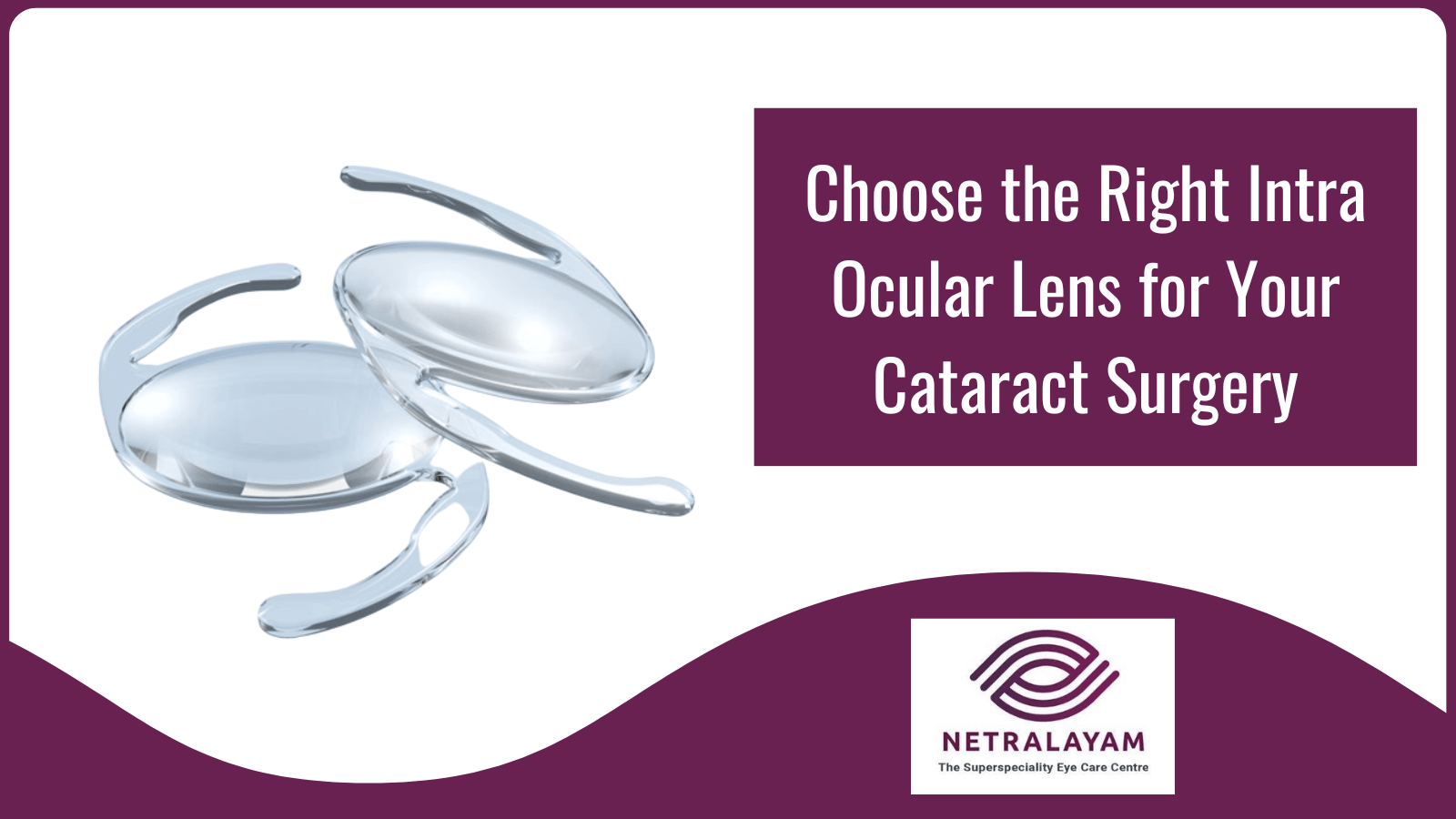Committed to Eye Care with Compassion, Technology and Competency
Committed to Eye Care with Compassion, Technology and Competency

7/26/2023
Among ocular diseases, cataract is a major cause of blindness according to the Global Burden of Disease, Injuries, and Risk Factors Study (GBD), stating that it is the second leading cause of moderate and severe vision impairment. India conducts almost 65 lakh cataract surgery every year under the National Programme for Control of Blindness and Visual Impairment (NPCBVI).
An intra-ocular lens (IOL) is an artificial lens for the eye. It replaces the eye's natural lens that is removed during cataract surgery. The lens bends light rays that enter the eye, helping you to see. Your lens should be clear. But if you have a cataract, your lens has become cloudy. An IOL can not only restore vision lost due to cataracts but may also correct refractive errors such as nearsightedness (myopia), farsightedness (hyperopia), astigmatism or presbyopia.
There are different types of IOLs available in present days:
A monofocal IOL is an intraocular lens with a fixed focus for one distance. The most common type of lens used with cataract surgery is called a monofocal IOL. It has one focusing
distance. Most people have them set for clear-distance vision. Then they wear eyeglasses for reading or close work
A multifocal intra-ocular lens (IOL) is a specialized type of IOL that helps to correct both near and far vision. The IOL works by having different rings on the surface of the lens, each designed to focus light differently across varying distances. This type of IOL is much costlier than monofocal IOLs. It allows a person to do distance and near work without corrective eyewear after cataract surgery.
This IOL is designed to provide continuous vision across multiple distances. EDOF lenses create a single elongated focal point, rather than several rings of different focal distances, to enhance the depth of focus. The EDOF intraocular lens is designed to improve the range of vision, especially at intermediate distances. The most important advantage of this lens over the multifocal lens is reduced glare and color halos but sacrifices unaided vision for fine prints at near.
Toric IOL is considered when the patient is having significant cylinder power - which has to be confirmed by biometry as well. Astigmatism is a specific scenario where the corneal surface is not perfectly spherical, resulting in skewed or blurred vision. Toric IOLs can offer better and sharper vision than conventional IOLs because they are specifically made to fix any pre-existing astigmatism.
The best intraocular lens for you depends on many factors, including your lifestyle and your specific visual needs. Here are some tips to follow when choosing an IOL:
(1) How to Choose the Best Lens for Your Cataract Surgery. https://myvision.org/cataracts/cataract- surgery-lens-options/
(2) How to Choose an Intraocular Lens by Amy Cherof, M.D.. https://www.mariettaeye.com/eye-care- info/how-to-choose-an-intraocular-lens-by-amy-cherof-m-d/
Comments are closed
